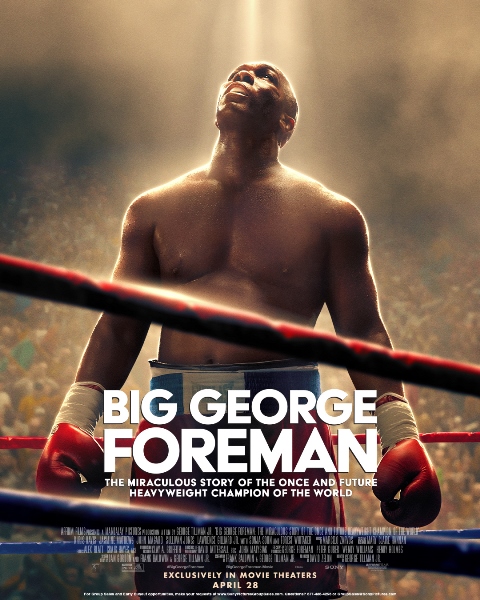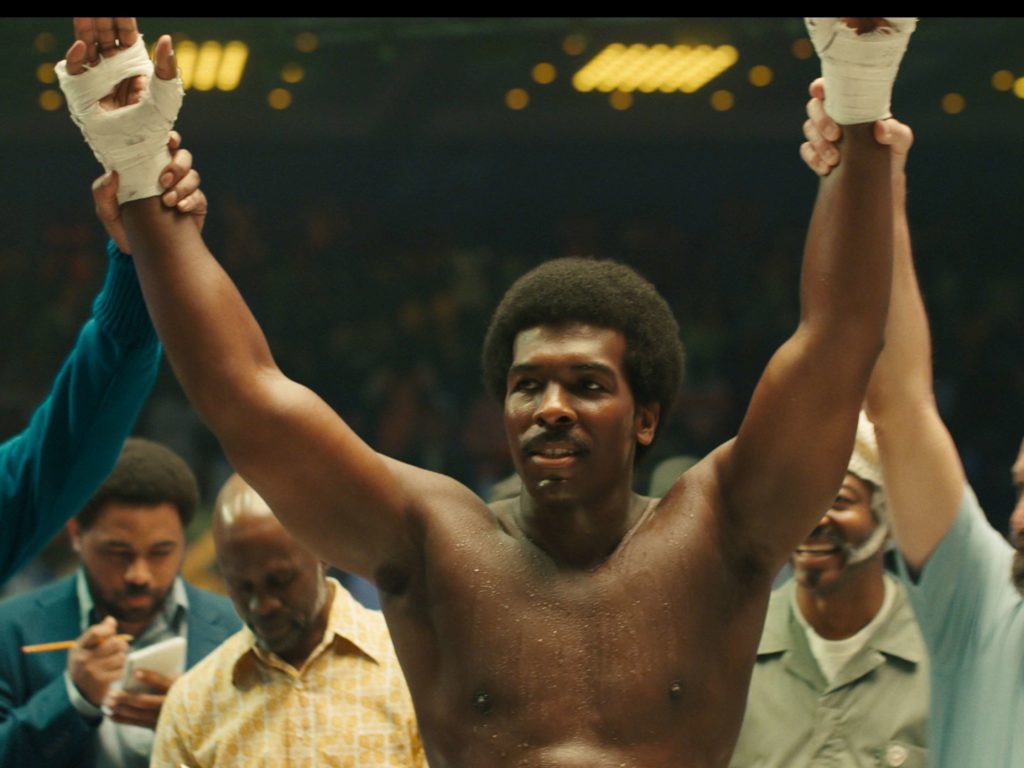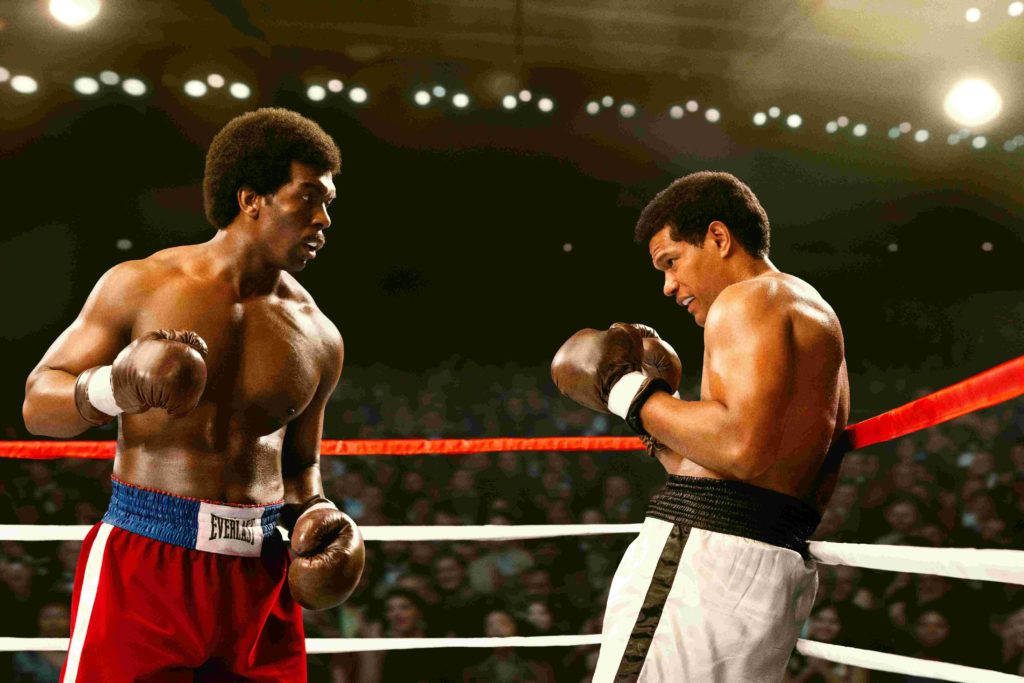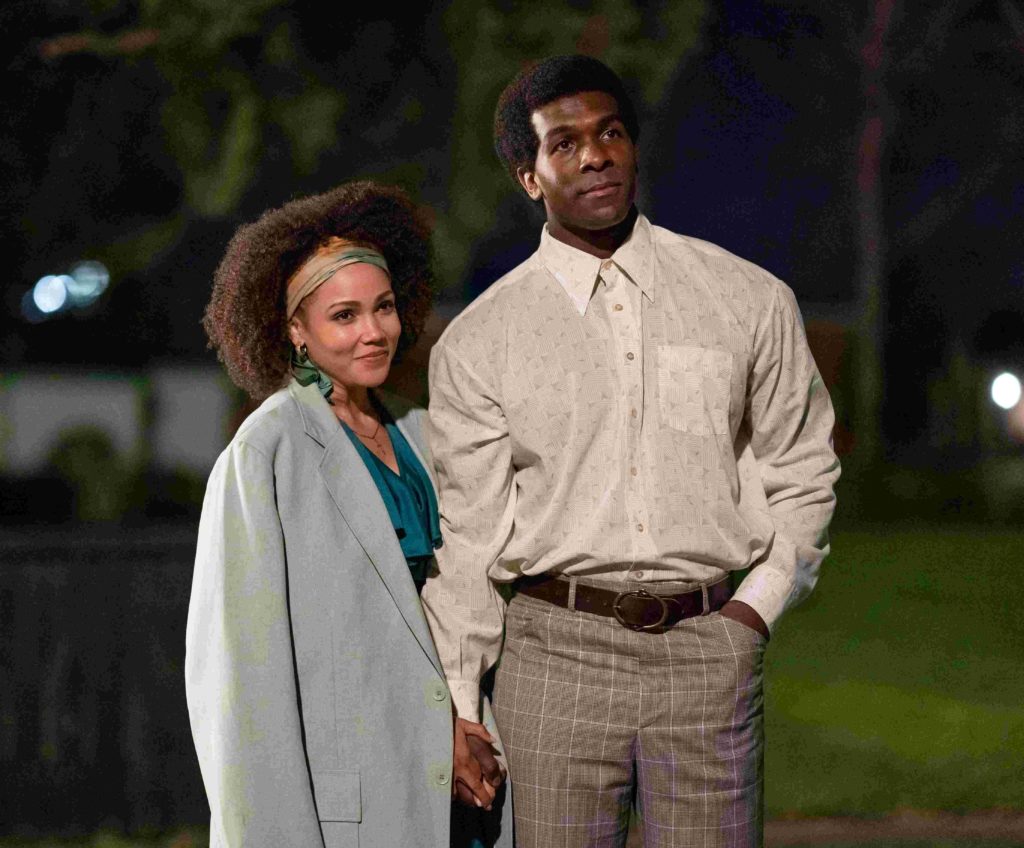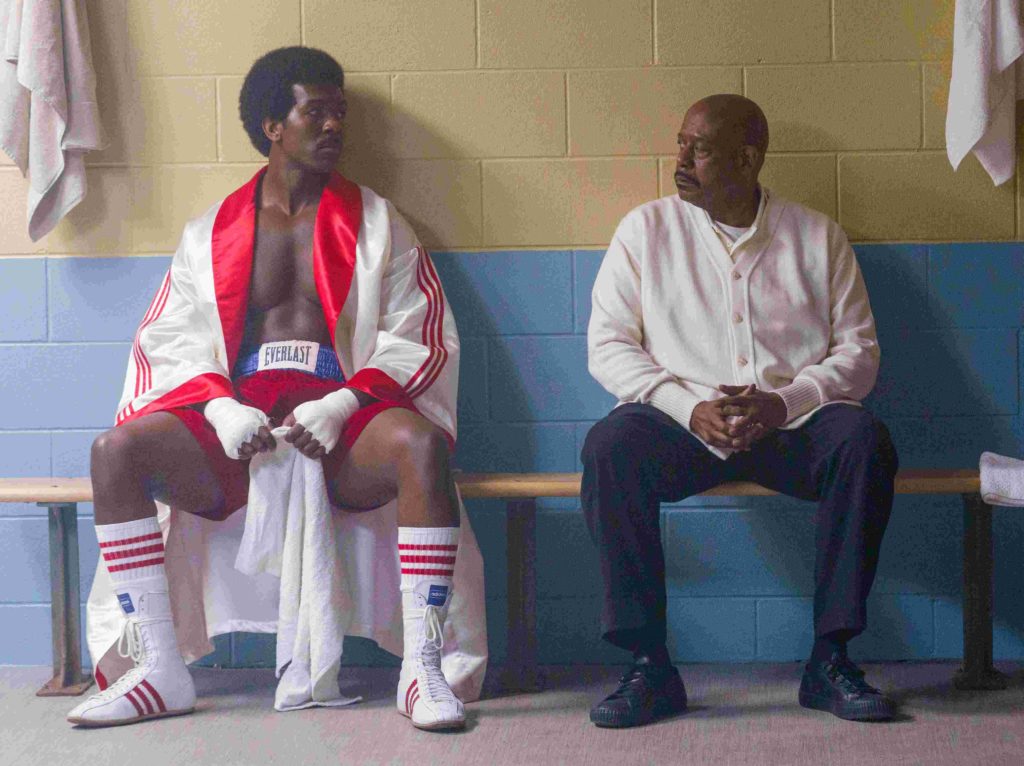‘Big George Foreman’ movie: Fame, tragedy, triumph, second chances
By Rusty Wright
George Foreman’s storied career has many facets: Olympic gold medalist, twice World Heavyweight Boxing champion, TV grill pitchman, philanthropist. But a near-death experience forever altered his life’s trajectory. Sony’s new biopic conveys his tragedies and triumphs, with inspiration for anyone who ever needed a second chance.
Big George Foreman stars Khris Davis (Judas and the Black Messiah) as Foreman and Academy Award-winner Forest Whitaker (The Last King of Scotland) as Foreman’s trainer and mentor Doc Broadus.
Foreman quips that he received his first punch in the 1940s “when the doctor slapped my behind.” His memoir says the ’50s brought his first thrown punches, the ’60s Olympic gold, the ’70s his world heavyweight championship, the ’80s his unexpected boxing return, the ’90s his stunning second world heavyweight championship at age 45, and the new millennium his “King of the Grills” appellation.
Rags to riches resets
As the film vividly portrays, his life has been rags to riches resets. In his impoverished youth, an often absent, alcoholic father and sparse meals taught him to value scraps. Sometimes family dinner was one hamburger divided eight ways, lunch a mayonnaise sandwich.
He frequently skipped school, learning pugilism through street fighting. Hatred and anger fueled his rage. “Poverty produces a feeling of hopelessness,” he recalls. Mugging and theft became routine.
He craved love and acceptance. When riches grew, he flaunted his possessions.
Killer instinct
In the ring, he “wanted to hurt” his opponents: “I viewed them as animals to be hunted,” not as humans; “they were the enemy,” he recalls. “I’d say to myself, I’m going to kill him.” The film mixes realistic, pounding boxing action with character insights.
Foreman thought money could solve all his problems…until it couldn’t. When his beloved nephew became seriously comatose, George’s name, fame and wealth couldn’t cure the boy. His mother counseled, “Son, you’re just going to have to pray.”
“When someone tells you the only thing you can do is pray,” he realized, “that’s bad.” He’d “never really prayed before…. I didn’t believe in all that religious stuff.” He “mocked” Bible readers, considering Christianity “boring…an escape for poor people and little old ladies.” Desperate to save his nephew, he finally asked God to spare the boy and take his own life.
Near-death experience
The boy recovered. Empty and unfulfilled, George contemplated suicide. After a 1977 match, he blacked out in the dressing room and experienced “utter darkness,” “the putrid smell of death,” intense fear and “hopelessness.”
He emerged from the brush with death believing that Jesus had suffered for him. “Jesus Christ is coming alive in me!” he suddenly shouted on the training table, astonishing his companions, using a name they “had only heard me use in profanity.”
Foreman says his new faith brought joy, love, peace, contentment, and significance. Especially impressive was forgiveness overcoming revenge.
Forgiveness trumps revenge
George had previously considered hiring a hit man to kill Leroy, a former friend and employee who had swindled him by selling his house and treasured possessions. Now he sincerely forgave Leroy, who was astonished. George forgave his previous enemies and asked forgiveness. He told friends and other boxers his story: Muhammad Ali, Archie Moore, Joe Frazier, Sammy Davis Jr., Marvin Gaye.
George became a pastor, speaking internationally about his life changes. His alcoholic father came to faith and stopped drinking. George founded a youth center to help troubled kids.
The film poignantly depicts that George has had his share of setbacks. His wife left him. He suffered bankruptcy from others’ mismanagement, but resumed boxing to pay the bills and fund his charity.
Turning tragedy to triumph
Turning tragedy to triumph is a life theme. An image of Ali standing in victory over a defeated Foreman reminds him that his disappointing failure – losing the heavyweight title – began his spiritual search. He and Ali became good friends. “All things work together for good to those who love God,” Foreman affirms.
I suspect that anyone who’s lost a spouse, or a job, or friends or money or popularity or opportunity will identify with George’s story. I certainly can; I’ve lost them all. Big George Foreman should inspire folks to consider the boxer’s hope-through-heartache outlook. I have a hunch that’s his wish.
Rated PG-13 (USA) “for some sports violence.”
www.biggeorgeforeman.movie In theaters April 28 (USA) International Release Dates (3 continents)
Rusty Wright is an author and lecturer who has spoken on six continents. He holds Bachelor of Science (psychology) and Master of Theology degrees from Duke and Oxford universities, respectively. www.RustyWright.com
Copyright © 2023 Rusty Wright
# # #
Editors: Note pictures below. For access to these and more, check here, here, here, here, here, and here.
